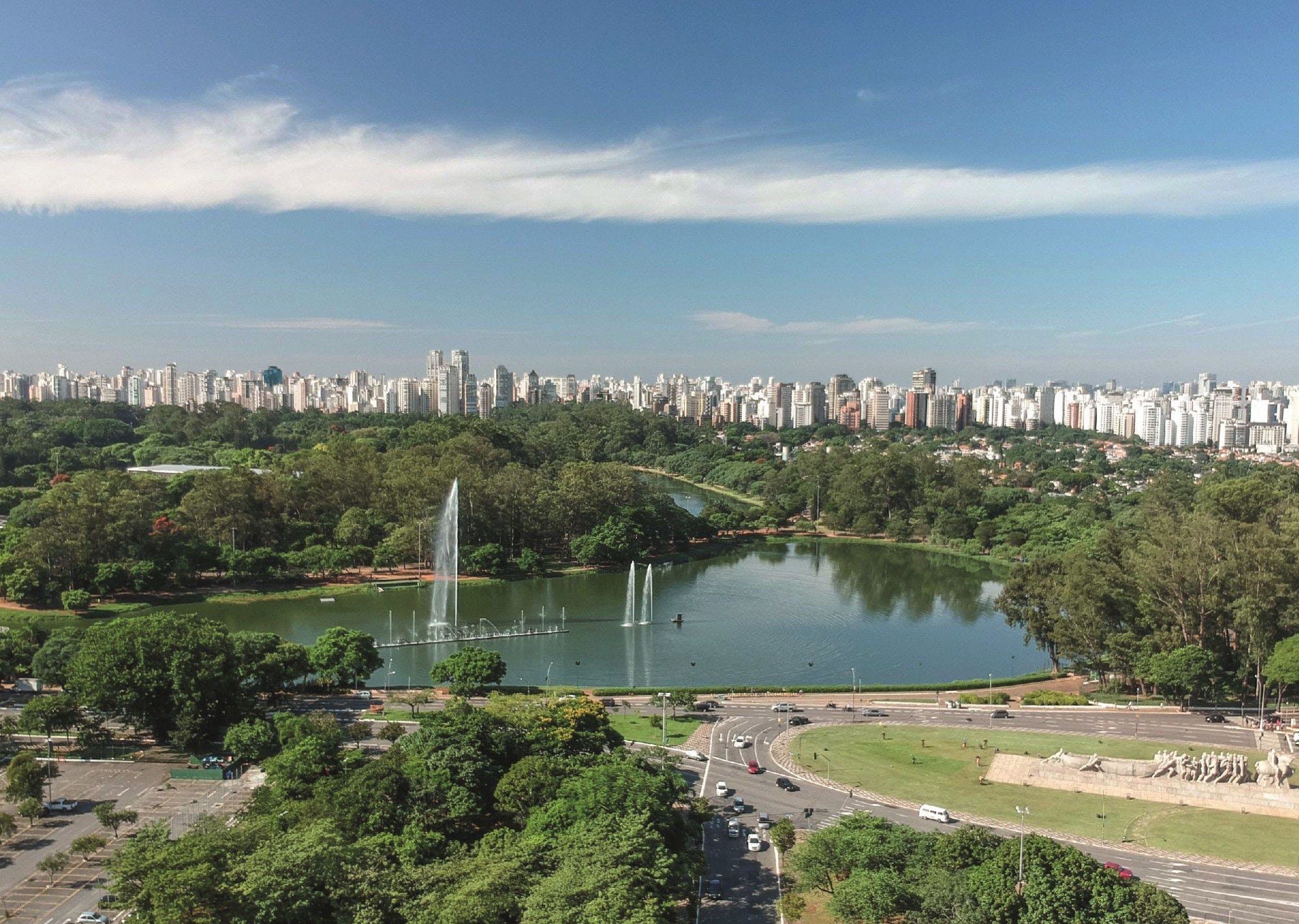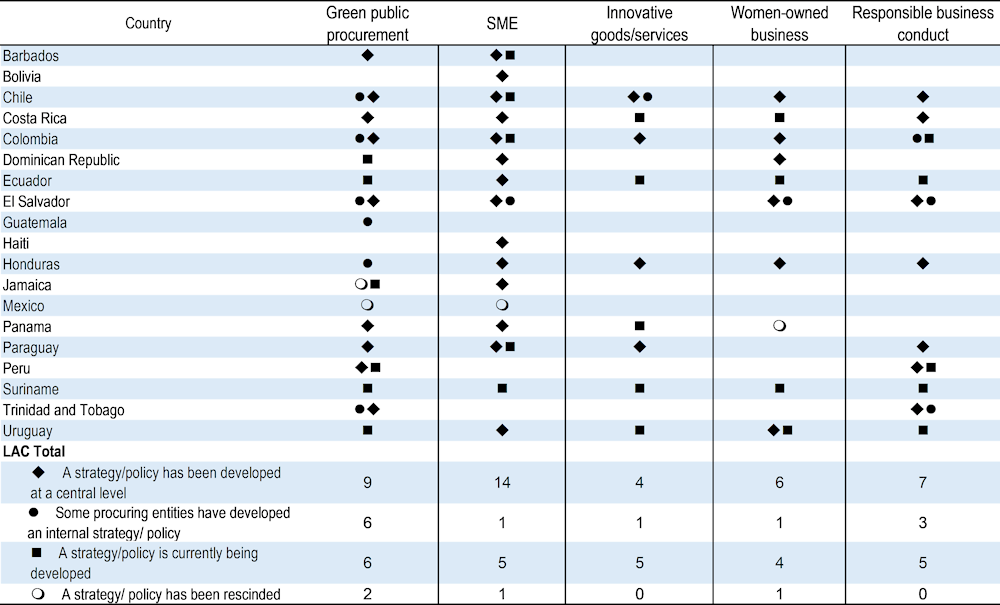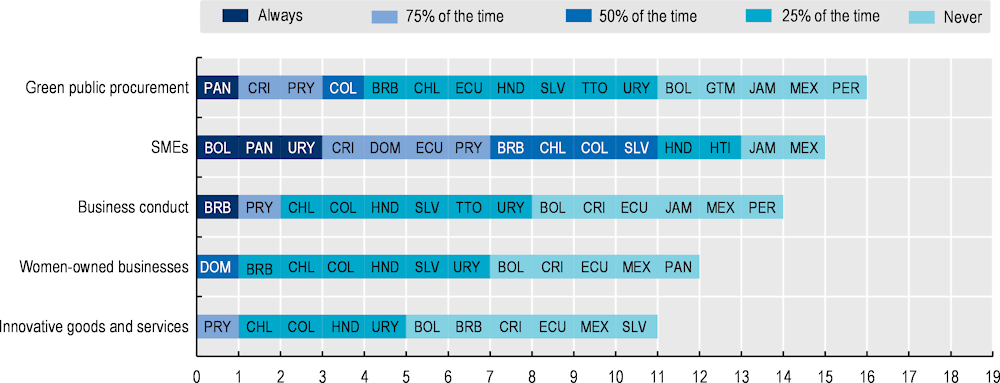Beyond saving costs and promoting operational efficiency, public procurement is strategically placed to promote social objectives such as sustainability, inclusion, community development and environmental responsibility. These objectives are promoted by a range of actions, including mechanisms to foster innovation, providing conditions for small and medium-sized enterprises (SMEs) to compete on equal footing, and favouring companies mindful of environmental sustainability and gender equality criteria. Although the use of public procurement as a strategic policy instrument is not a recent phenomenon, it is being increasingly adopted by public administrations in LAC countries (Delgado et al., 2023). Since governments define the rules for public procurement processes, they can also establish regulations that consider social objectives while tendering, awarding a bid or evaluating projects.
Indeed, 16 out of 19 surveyed LAC countries (84%) reported having policies or strategies in their central public procurement systems designed to pursue one or more social objectives. One of the most frequently pursued objectives relates to policies or strategies for SMEs, either at the central level or by procuring entities (14 out of 19 countries, or 74%). Likewise, 9 out of 19 LAC countries (47%) have central-level green procurement strategies or policies. For instance, Colombia has initiated sustainable public procurement programmes, leading to planning procurement policies with environmental criteria within ministries. In addition, seven of the surveyed LAC countries have policies concerning responsible business conduct (37%), six on women-owned enterprises (31%), and four on innovation of goods and services (21%), while around 25% of surveyed countries are currently developing strategies for all these objectives at a central level. With a more limited scope, in Chile, Colombia, El Salvador, Guatemala, Honduras, and Trinidad and Tobago, some central purchasing agencies (CPAs) have developed internal strategies or policies for green public procurement (Table 7.1). The number of LAC countries relying on strategic public procurement to pursue social objectives indicates that it is being increasingly used to tackle some of the most pressing social issues in the region such as inequality and climate risks.
In addition to policies or strategies, all surveyed LAC countries have regulatory frameworks for public procurement that also consider at least one social objective. The most common objective is the environment (89%), followed by labour rights (74%) and integrity standards (63%). Only Jamaica and Suriname have public procurement regulatory frameworks that consider long-term unemployment. Jamaica, Paraguay, and Trinidad and Tobago have regulatory frameworks covering seven of the eight social objectives surveyed (Figure 7.10).
Finally, social objectives can be used as a criterion to award procurement bids. The criterion used most frequently is whether a proposal considers SMEs (11 out of 19 countries reported using this 50% of the time or more). This is followed by green public procurement (four countries reported a frequency of 50% or more). Panama reported always using this criterion when awarding bids, Costa Rica and Paraguay use it 75% of the time, while Colombia considers it 50% of the time (Figure 7.11).



